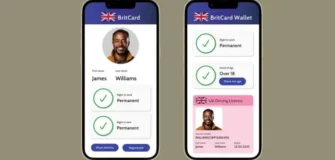How Encryption Protects Your Business from Data Breaches and Cyber Threats
Share

In today’s hyperconnected world, data is the new oil—and cybercriminals know it. Businesses of all sizes, from startups to global enterprises, face constant threats from hackers, phishing attacks, ransomware, and insider leaks.
One of the most effective ways to defend sensitive information is encryption. It’s not just a buzzword—it’s the digital lock that ensures even if your data is stolen, it remains unreadable to unauthorized eyes.
This article explores how encryption protects your business from data breaches and cyber threats, backed by real-world examples and expert insights.
What Is Encryption?
Encryption is the process of converting data into a coded format that can only be read by someone with the correct decryption key.
Think of it as placing your confidential files inside a high-tech vault—only those with the key can open it.
Two Main Types of Encryption
| Type | Description | Example Uses |
|---|---|---|
| Symmetric Encryption | Uses a single key for both encryption and decryption. | Disk encryption, internal databases. |
| Asymmetric Encryption | Uses a public key to encrypt and a private key to decrypt. | Secure email, online transactions (SSL/TLS). |
Popular encryption algorithms include AES (Advanced Encryption Standard), RSA, and Elliptic Curve Cryptography (ECC).
Why Encryption Is Essential for Your Business
1. Protects Sensitive Data
Encryption ensures that customer data, financial records, and intellectual property remain protected—even if systems are breached.
Example: When a hacker stole customer data from a financial services company, the information was encrypted using AES-256. The attacker gained access to the files but couldn’t read any of the data, saving the company from regulatory fines and reputational damage.
2. Prevents Insider Threats
Not all threats come from the outside. Encryption ensures that even employees or contractors without authorization cannot access or misuse sensitive files.
3. Helps Maintain Customer Trust
In an era where consumers are increasingly aware of privacy, encryption shows your business takes data protection seriously. A single breach can destroy brand credibility—but encryption limits that risk.
4. Ensures Compliance with Data Protection Laws
Regulations like:
- EU’s GDPR (General Data Protection Regulation)
- Nigeria’s NDPA (Nigeria Data Protection Act 2023)
- California Consumer Privacy Act (CCPA)
all emphasize the need for strong technical and organizational measures—and encryption is one of the most recognized standards of compliance.
Failure to implement proper encryption can result in heavy penalties, lawsuits, and loss of operating licenses.
5. Protects Data in Transit and at Rest
- Data at rest: Stored files, databases, and backups.
- Data in transit: Emails, network communications, or cloud data transfers.
Without encryption, attackers can intercept this data (through man-in-the-middle attacks or unsecured Wi-Fi). Encryption ensures the data remains unreadable even if intercepted.
How Encryption Mitigates Cyber Threats
| Cyber Threat | How Encryption Helps |
|---|---|
| Data Breaches | Encrypted data is useless to attackers without the decryption key. |
| Ransomware Attacks | Backups encrypted securely prevent data tampering. |
| Phishing & Identity Theft | Protects login credentials and personal identifiers. |
| Cloud Vulnerabilities | End-to-end encryption ensures even cloud providers can’t read stored data. |
| Man-in-the-Middle Attacks | SSL/TLS encryption protects communications between servers and browsers. |
Real-World Examples
- Apple’s iPhone Encryption:
Apple uses full-disk encryption, meaning even if someone physically steals an iPhone, they cannot access the data without the passcode. - The WhatsApp Example:
WhatsApp’s end-to-end encryption ensures that even the company itself cannot read your messages—only you and the recipient can. - Equifax Data Breach (2017):
If sensitive data had been encrypted, the exposure of over 140 million records could have been largely mitigated.
Implementing Encryption in Your Business
Here’s how to integrate encryption effectively:
- Encrypt All Sensitive Files: Use AES-256 or similar standards.
- Secure Data in Transit: Implement SSL/TLS certificates for websites and VPNs for remote employees.
- Encrypt Backups: Never store backups in plain text, whether on-premises or in the cloud.
- Use Disk Encryption Tools: For company laptops and mobile devices.
- Manage Encryption Keys Securely: Use trusted Key Management Systems (KMS) to store, rotate, and audit keys.
Common Mistakes Businesses Make
- Relying on weak encryption algorithms (like outdated DES).
- Storing encryption keys in the same location as the encrypted data.
- Not encrypting data backups or temporary files.
- Failing to train employees on encryption best practices.
FAQs
Q1. Does encryption slow down business operations?
Not significantly. Modern hardware and cloud platforms are optimized for encryption, making performance impact minimal.
Q2. Is encryption enough to prevent all cyberattacks?
No. It’s one layer of protection—combine it with firewalls, regular patching, and employee training for full security.
Q3. What type of encryption is best for small businesses?
AES-256 symmetric encryption is highly secure and efficient for most small to medium organizations.
Q4. How can I ensure compliance with data protection laws?
Adopt recognized frameworks like ISO 27001 and consult your Data Protection Officer (DPO) to align with GDPR or NDPA requirements.
Q5. Do cloud storage providers encrypt my data automatically?
Some do, but always verify. For added security, encrypt files yourself before uploading.
Conclusion
Encryption is no longer optional—it’s an essential defense mechanism against modern cyber threats. Whether you run an e-commerce store, a financial firm, or a digital startup, encryption acts as a digital shield protecting your data, customers, and reputation.
By combining encryption with sound cybersecurity policies and compliance practices, your business not only prevents costly data breaches but also earns something invaluable: trust.



































Leave a Reply